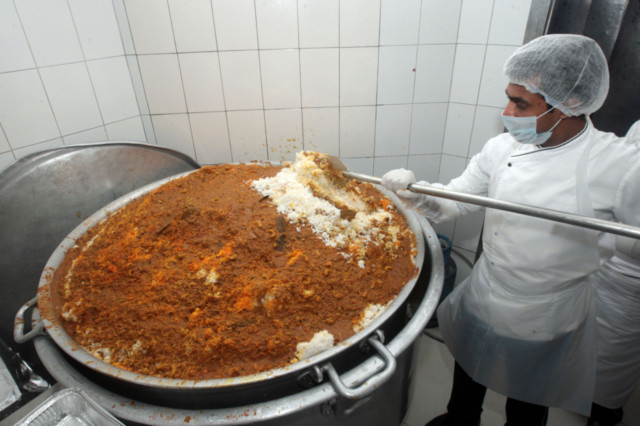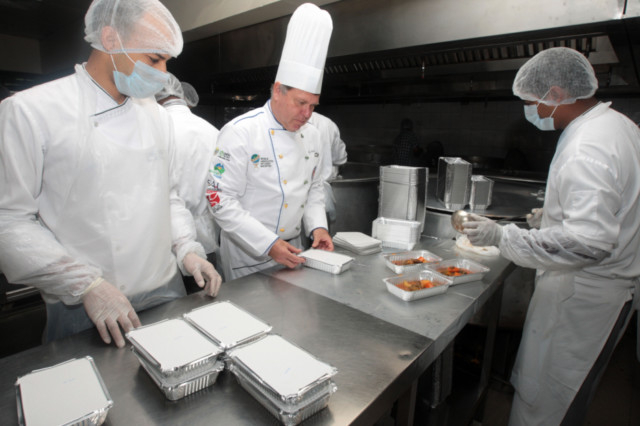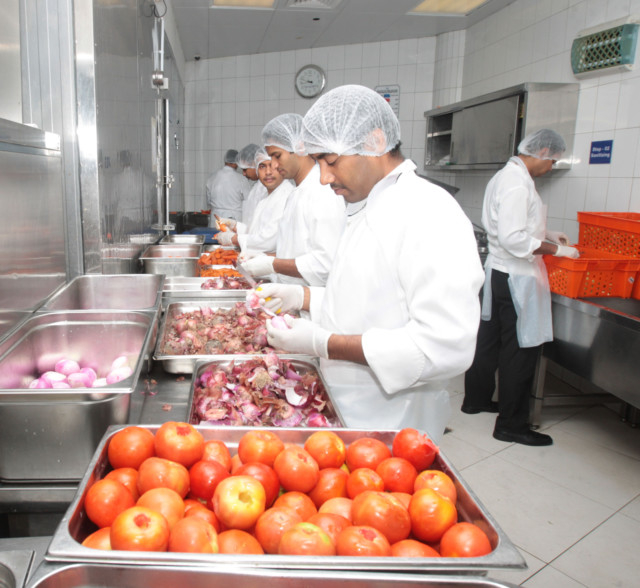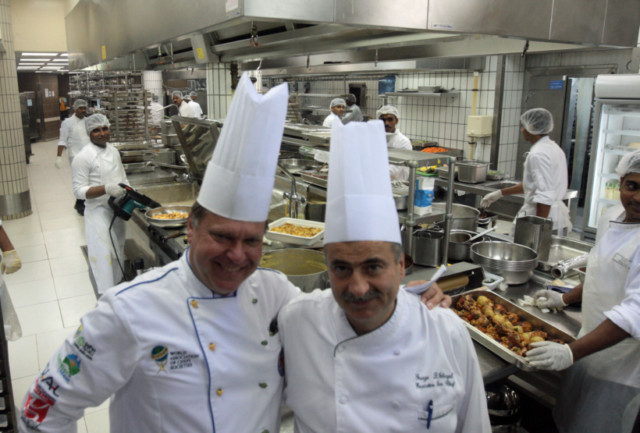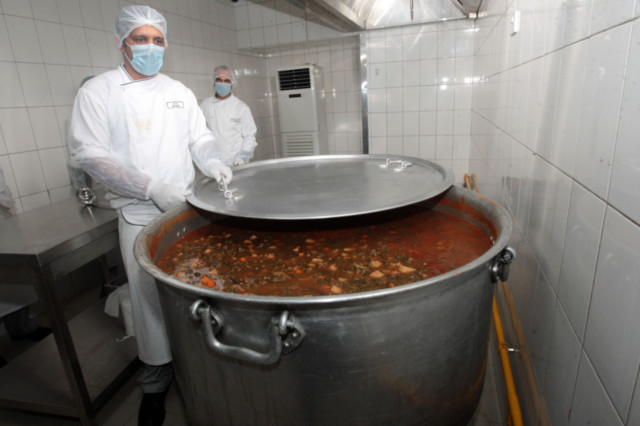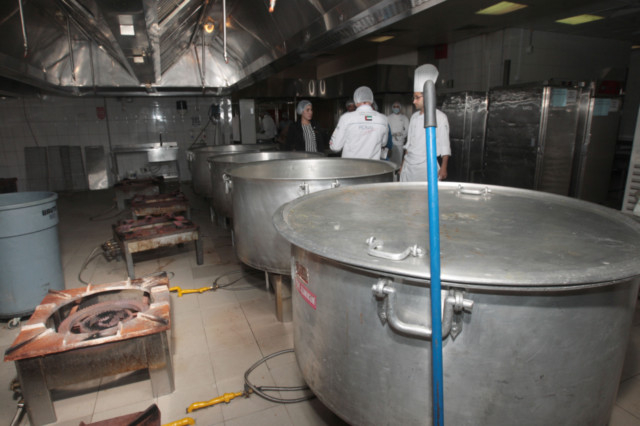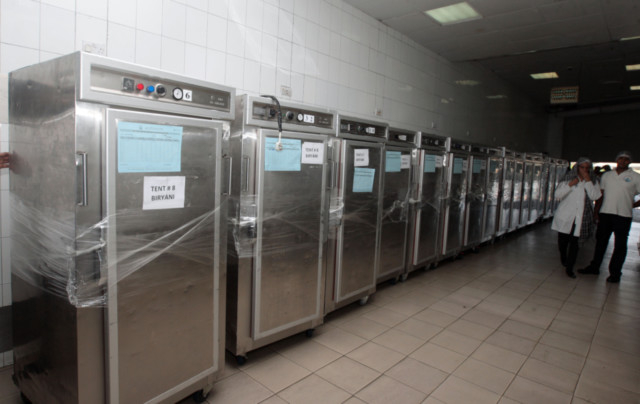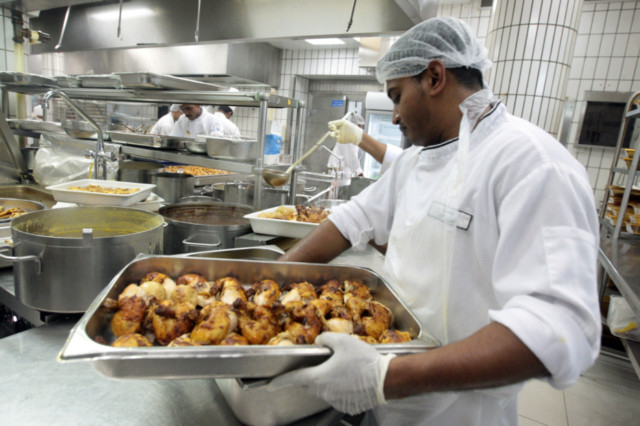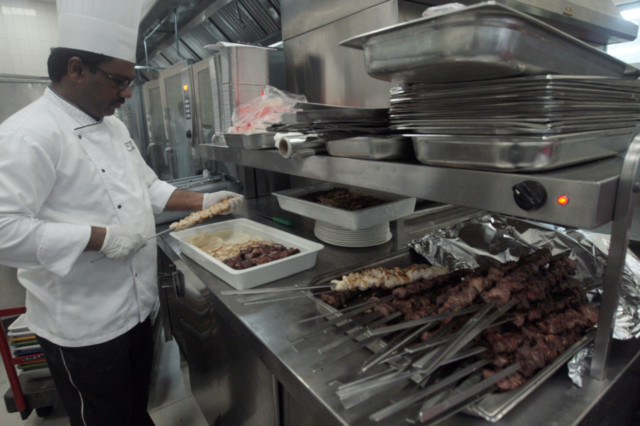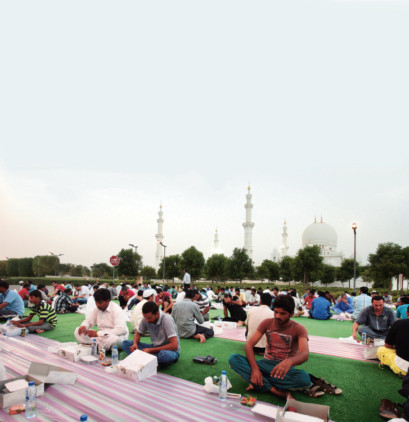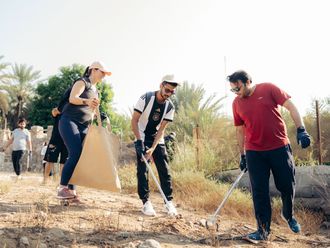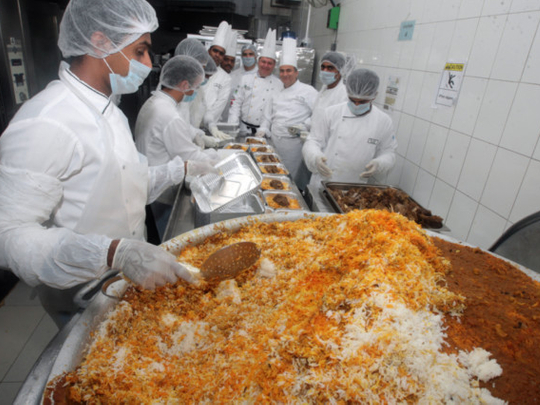
Abu Dhabi: It’s 4am. The kitchen at the Abu Dhabi Armed Forces Officer’s Club and Hotel is buzzing with activity.
More than two dozen men are at work. In another section, men wearing caps and gloves are lining up thousands of pieces of chicken and lamb that has been marinated overnight into 15 giant convection ovens.
About 25 massive cauldrons are heated and kept ready to cook saloona (traditional stew).
By 8am, the activity moves up a few gears. An army of chefs is rapping out orders to team heads and assistants who oversee the mammoth operations inside the biggest iftar kitchen in Abu Dhabi.
Even with 300 cooks and 150 stewards on duty, it is a race against time to whip up 20,000 to 25,000 iftar meals daily. We are talking 10,000kg to 12,000kg of chicken, 3,000kg to 4,000kg of lamb, 6,000kg to 7,000kg rice and 8,000kg to 9,000kg of vegetables and spices being used up every day. By 4pm, they roll out neatly packed individual containers of iftar boxes containing biryani with half-kilo chicken or lamb, vegetable saloona, salad, water, apple, dates, laban and fruit juice.
Well before the 7.15pm ending of fast, the iftar packets are delivered to thousands of faithfuls seated inside iftar tents at the Grand Mosque compound.
“It is team work,” Karsten Gottschalk, executive chef at the kitchen told XPRESS. “It requires sheer dedication and hard work from every member of the team,” added the German chef who has been working with the Officers Club since 2012.
One of the biggest charitable Ramadan endeavours, the Grand Mosque iftar began in 2004 after the passing away of Shaikh Zayed Bin Sultan Al Nahyan, founding father of the UAE.
Forty-seven-year-old sous chef George Boutros from Lebanon has been part of the iftar kitchen since the start. “We were cooking less than 10,000 meals daily in the first few years. It is growing bigger every year,” he said.
In an exclusive tour of the kitchen, XPRESS got a good peek into this unique culinary challenge Gottschalk and his men undertake daily.
Big numbers
Chef Remon Wesly was busy supervising the preparation of saloona. Gigantic pots were used to cook the stew with each pot able to take in 25kg of potatoes, 14kg of carrots, 20kg of marrow and 25kg of tomatoes.
According to Wesly, there were 25 men overseeing the preparation. “It is the same dish we prepare every day. But we change the vegetables to add a different taste to the stew,” said Wesly.
Cooking of rice is another humongous task: 500 litres of water is used to cook 35kg of rice in one turn. “After 20 minutes of cooking, you get 70kg of rice. It takes several rounds to cook 6,000 to 7,000kg of rice – the daily required quantity,” explained the head chef.
At another station, curry masala, saffron, ghee and coriander are mixed into the cooked rice to add flavour. Then there are five separate tables where men stuff the rice and meat into an aluminium pack. The sealed packs are transferred into heating cabinets.
“The biggest challenge is to keep the food unspoilt till 7pm in the evening,” said Anwar Sadath who ensures hygiene in the kitchen. “We have 200 heated cabinets where food is kept at temperatures above 63 degree celsius.”
Every cabinet has a number and is monitored and documented on the control sheet. The control sheet contains information on time of production, departure, location of the tent, how much food it contains, etc.
A fleet of 15 generator-controlled trucks transport the food before 4pm to the Grand Mosque. And a team of 500 caterers organise the distribution of the food boxes into the 11 tents erected at the lower gardens of the Grand Mosque.
For thousands of workers and residents, Grand Mosque iftar is an integral part of Ramadan in UAE.
You Speak
Which is the best iftar you have been to?
Write to us at:
editor@xpress4me.com
www.xpress4me.com
sms 5101


